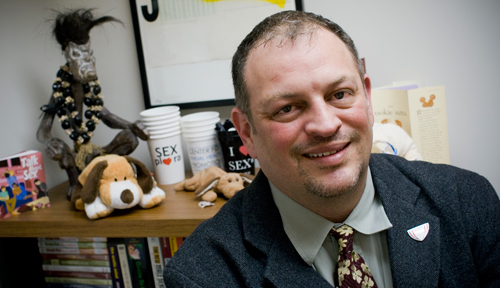What adults know about human sexuality and sexual health can impact how sexually literate their children are, which in turn can have dramatic effects in reducing unwanted pregnancies and sexually transmitted infections.
With that in mind, researchers from UNMC and the Nebraska Adult Sexual Literacy Project (NASLiP) have instituted a project to find out what Nebraska adults really know and what gaps exist.
On Jan. 10, the Nebraska Adult Sexual Literacy survey was mailed to approximately 3,000 randomly selected households across the state. All Nebraska communities are being targeted, with additional efforts focused on Douglas County.
The 88-question online survey is available in English and Spanish and does include sexually explicit questions. It’s estimated the survey will take no longer than 15 minutes to complete.
Through this survey, researchers hope to find out what adults do know and what they feel comfortable in sharing with their children.
“Once we establish what adults know and where they may be lacking in knowledge, we can work with our partners to develop interventions and increase the sexual literacy of Nebraskans,” said Christopher Fisher, Ph.D., an assistant professor in the UNMC College of Public Health.
Dr. Fisher and colleagues are collaborating with Adi Pour, Ph.D., director of the Douglas County Health Department, and Dylan Zaner, an undergraduate student in the public health program at the University of Nebraska at Omaha.
Dr. Fisher said parents need to be well educated in all areas of human sexuality and health so they can provide accurate information to their children and help prevent the spread of illness.
Awareness of the need to assess the state’s sexual literacy grew out of the June 2012 sexual health summit, Dr. Fisher said. That gathering of health practitioners, educators, local government organizations and researchers determined that adult sexual literacy was the most important issue to be addressed.
“The group theorized that sexually literate adults would be able to have accurate conversations with young people, policy makers and partners, and that would lead to a reduction in unwanted pregnancies and sexually transmitted infections,” Dr. Fisher said.
